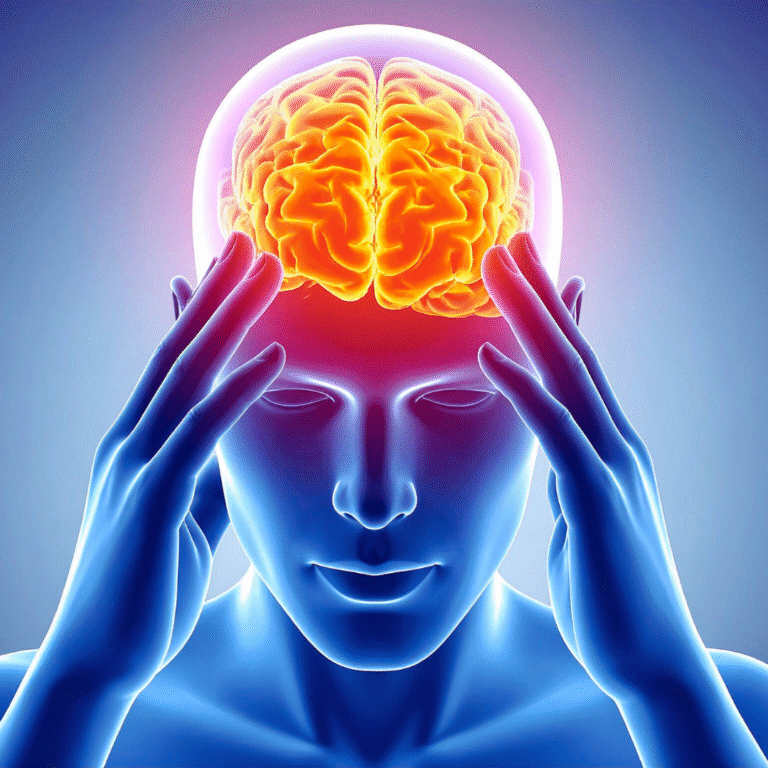Hydration plays a crucial role in both mental and physical health. Adequate fluid intake is essential for maintaining cognitive function, emotional well-being, and overall physical fitness. Many individuals underestimate the significant impact that hydration has on their daily performance and mood.
When the body is properly hydrated, it functions more efficiently, allowing individuals to think clearly and feel energized. Dehydration can lead to fatigue, confusion, and irritability, highlighting the importance of staying hydrated for optimal mental clarity and emotional balance.
Moreover, hydration supports vital bodily processes, such as digestion and circulation, which are key to sustaining physical health. Ensuring that the body receives sufficient water can enhance physical performance and promote recovery after exercise, underscoring hydration’s critical role in maintaining an active lifestyle.
Understanding Hydration
Hydration plays a crucial role in maintaining both mental and physical health. Proper hydration is essential for optimal bodily functions while dehydration can lead to various health issues. Knowing how much water is needed daily is vital for achieving a balanced fluid intake.
Defining Proper Hydration
Proper hydration refers to maintaining a balance of fluids essential for bodily functions. It involves consuming adequate amounts of water to replace what is lost through urine, sweat, and breathing. For adults, the general recommendation is to drink about 2 to 3 liters of water daily, but individual needs may vary based on factors like activity level and environment.
Water facilitates numerous bodily processes, including digestion, temperature regulation, and nutrient transportation. Insufficient fluid intake can impair performance, concentration, and overall well-being. Therefore, recognizing the signs of proper hydration is crucial for health management.
Dehydration and its Impact
Dehydration occurs when the body loses more fluids than it takes in. Even mild dehydration can cause noticeable effects such as fatigue, dizziness, and cognitive impairments. Severe dehydration can lead to serious health complications, affecting organ function and potentially resulting in hospitalization.
The symptoms of dehydration can vary in severity, including:
- Dry mouth and skin
- Increased thirst
- Dark-coloured urine
- Headaches
Long-term dehydration can also contribute to chronic health problems, such as kidney stones and urinary tract infections. Being mindful of fluid intake is essential for avoiding these adverse effects.
How Much Water Do You Need?
The amount of water an individual needs can depend on various factors, including age, weight, exercise, and climate. A common guideline suggests a daily intake of approximately 30-35 ml per kilogram of body weight. For an average adult weighing 70 kg, this amounts to about 2.1 to 2.45 liters daily.
It’s beneficial to adjust water intake based on physical activity levels. Increased exercise demands higher fluid intake to replenish lost fluids through sweat. Additionally, certain conditions, such as hot weather or illness, may require further adjustments. Paying attention to hydration needs can significantly influence overall health and performance.
Hydration and Physical Health
Maintaining adequate hydration is essential for optimal physical health, influencing various bodily functions and performance levels. Hydration affects everything from muscle function to digestion, impacting physical performance, metabolism, and the prevention of certain health conditions.
Physical Performance and Endurance
Proper hydration significantly impacts physical performance and endurance. Fluid loss can lead to decreased strength, stamina, and coordination. Dehydration can reduce endurance by impairing thermoregulation, leading to increased body temperature and fatigue during exercise.
Studies show that a fluid loss of just 2% of body weight can negatively affect performance. Optimal hydration helps maintain electrolyte balance, supporting muscle contractions and energy production. For athletes, ensuring hydration levels are adequate before, during, and after exercise is crucial for maximizing performance and recovery.
Digestive System and Metabolism
Hydration plays a vital role in digestion and metabolism. Water is essential for the breakdown of food and nutrient absorption in the intestines, facilitating the transport of nutrients to cells. Insufficient water intake can lead to digestive issues such as constipation, as water helps soften stools.
Additionally, hydration is connected to metabolic processes. It aids in the efficient functioning of enzymes that break down macronutrients, influencing weight management. Drinking adequate water can also support kidney function and help prevent urinary tract infections and kidney stones, highlighting the importance of hydration for overall health.
Prevention of Health Conditions
Adequate hydration can prevent various health conditions. Proper fluid intake supports cardiovascular health by maintaining blood volume and circulation. Dehydration can strain the heart, increasing the risk of cardiovascular issues. Hydration is also crucial for regulating body temperature and can prevent heat-related illnesses. Additionally, it plays a protective role against kidney stones and urinary tract infections, as concentrated urine can lead to the crystallization of minerals and promote bacterial growth. Ensuring sufficient hydration is a simple yet effective strategy for maintaining physical health and preventing complications.
Hydration and Mental Functioning
Adequate hydration plays a vital role in optimizing mental functioning. It impacts cognitive abilities, mood regulation, and long-term mental health, influencing overall emotional well-being.
Cognitive Function and Mental Clarity
Hydration is essential for maintaining cognitive function. The brain, which is about 75% water, relies on proper hydration for optimal performance. Dehydration can lead to decreased attention, slower reaction times, and impaired memory. Studies indicate that even mild dehydration may negatively affect short-term memory and cognitive performance. Individuals might experience difficulties in concentrating and processing information, significantly impacting daily activities and work efficiency. Ensuring sufficient fluid intake supports neurotransmitter production, critical for effective communication between brain cells.
Mood, Stress, and Emotional Well-Being
Water consumption also directly influences mood and emotional regulation. Dehydration can result in irritability, anxiety, and heightened stress levels. It has been linked to fluctuations in serotonin and dopamine, neurotransmitters crucial for mood stability. A hydrated brain can manage stress more effectively and maintain emotional balance. Regular hydration may assist in reducing symptoms of anxiety and depression, contributing to an overall sense of mental wellness. Individuals who prioritize hydration often report improved mood and a greater ability to cope with stress.
Long-Term Benefits of Mental Health
Long-term hydration positively impacts mental health and cognition. Sustained water intake may reduce the risk of cognitive decline and support brain function in aging populations. Research suggests that individuals who remain well-hydrated throughout their life can experience better memory retention and cognitive abilities. This is particularly important for effective emotional regulation and overall mental well-being. Hydration can be a key factor in promoting mental resilience, enabling individuals to better navigate life’s challenges and enhance their quality of life.
Practical Hydration Tips
Maintaining proper hydration is essential for both mental and physical health. Several strategies can help individuals stay adequately hydrated while recognizing the foods that contribute to water intake and identifying signs of dehydration.
Effective Strategies for Staying Hydrated
To ensure consistent water intake, individuals should aim to drink water at regular intervals throughout the day. Carrying a reusable water bottle can serve as a reminder to stay hydrated. Setting specific goals, such as drinking a glass of water before each meal, can also be beneficial. Incorporating hydration habits into daily routines improves adherence. Furthermore, drinking herbal teas or diluted fruit juices can contribute to overall fluid intake. It is recommended to increase water consumption before, during, and after exercise to replace lost fluids and maintain energy levels.
Hydrating Foods and Their Role
Certain foods provide significant hydration benefits. Water-rich foods can contribute meaningfully to daily water intake. Some examples include:
- Cucumbers: Approximately 95% water, they are low in calories and a crisp snack option.
- Oranges: Containing about 86% water, they provide vitamin C alongside hydration.
- Watermelon: This popular summer fruit consists of around 92% water and is refreshing.
Incorporating these foods into meals can help individuals stay hydrated while benefiting from essential vitamins and minerals, enhancing overall well-being.
Signs of Poor Hydration and Corrections
Recognizing symptoms of dehydration is crucial for maintaining health. Common signs include dry mouth, fatigue, and dark yellow urine. If individuals experience headaches or dizziness, these may also indicate insufficient hydration. To correct dehydration, one should increase fluid intake promptly. Drinking water, alongside electrolyte-rich beverages if necessary, helps restore balance. Additionally, consuming foods with high water content can aid recovery. Practicing good hydration habits from the onset can help prevent constipation and promote overall digestive health, ensuring that symptoms do not escalate.




